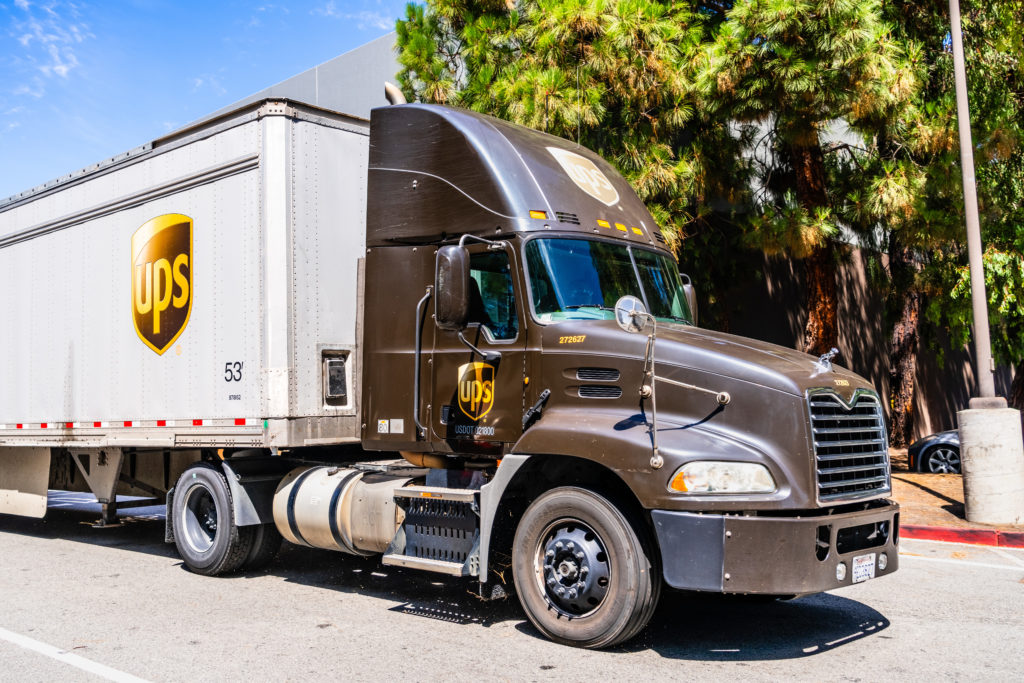
As coronavirus uncertainty continues to progress, deliveries need more flexibility in order to adhere to social distancing protocols, and upcoming COVID-19 testing sites need immediate support. Therefore, through the Rapid-Response Taskforce for CoronaVirus Testing Sites, the White House has requested the aid of the United Parcel Service in planning and support for community-based coronavirus testing site operations across multiple cities. UPS says they are ready to step up to the challenge.
“UPS is proud to provide logistics and transportation support to assist with the administration’s special Coronavirus multi-city testing program,” said UPS Chairman and CEO, David Abney. “We stand ready to assist to help keep our communities safe. We are mobilizing our air and ground network planning and operations teams and we are prepared to fully support this urgent testing program.”
Currently, the administration is testing drive-up sites as part of its pandemic response, and said it is working along with the private sector to open these sites–which would aim to serve between 2,000 and 4,000 people per day each–in the areas most impacted by the virus.
Most recently, New York, Washington, and California are the states with the highest number of COVID-19 cases. Testing priority will be given to healthcare workers, those suffering from symptoms of the virus, and the elderly.
Private testing sites are already active in more than ten states, including Colorado, Florida, and Texas. These new drive-through sites are an additional effort, made after the administration received heavy criticism for the slow progression of tests across the nation, which has quickly fallen behind other countries. Many health experts have explained that far too many patients showing COVID-19 symptoms are unable to get tested and that the overall testing capacity is extremely inadequate.
Abney explained that UPS is “prepared to fully support this urgent testing program.” The company transports more than three percent of global domestic product, and about six percent of American GDP.
“We know our customers rely on UPS to maintain the flow of goods throughout their supply chains,” Abney continued. “We are committed to rapidly adjusting our processes to ensure our employees, customers, and communities can maintain normal daily life to the greatest extent possible while we adjust to the new realities of this pandemic.”
So far, UPS has worked to minimize coronavirus risk by changing procedures, such as relaxing signature requirements on deliveries. To minimize contact and allow social distancing between carriers and recipients, UPS drivers will record the recipient’s name instead of a signature when a signature is requested. Recipients must also present identification with proof of age when an adult signature is requested by the shipper.
UPS also gives support to major healthcare companies, including its offering of supply chain management services as well as its shipping and storage of medical devices, pharmaceuticals, and clinical trials specimens.
Additionally, the company was one of the first to provide air cargo shipments to China of face masks and other protective equipment.
“UPS is serving the same role in the United States and in other countries around the world, beyond China, that are grappling with this virus,” said the company on its website.
The UPS Foundation has stated it will be giving $6 million in grants to organizations during this time such as United Way Worldwide, American Red Cross, Salvation Army, Operation Hope, Center for Disaster Philanthropy, Good360, UNICEF, World Food Programme, CARE, United Nations High Commission for Refugees, International Federation of Red Cross/Red Crescent, and NVOAD.
“We know our customers rely on UPS to maintain the flow of goods throughout their supply chains,” Abney said. “We are committed to rapidly adjusting our processes to ensure our employees, customers, and communities can maintain normal daily life to the greatest extent possible while we adjust to the new realities of this pandemic.”
According to UPS Spokesperson Steve Gaut, a timetable for the testing site roll-out can not yet be provided.
“The White House and the Task Force will be discussing the cities at a future time,” said Gaut. “We will be working with them to make sure there are plans in place to ship the test kits for manufacturers to the locations set up in temporary facilities or parking lots in other public spaces. We will also be working to make sure the swabs are able to be picked up on a timely basis and sent to the labs to complete the tests.”
Reader Interactions